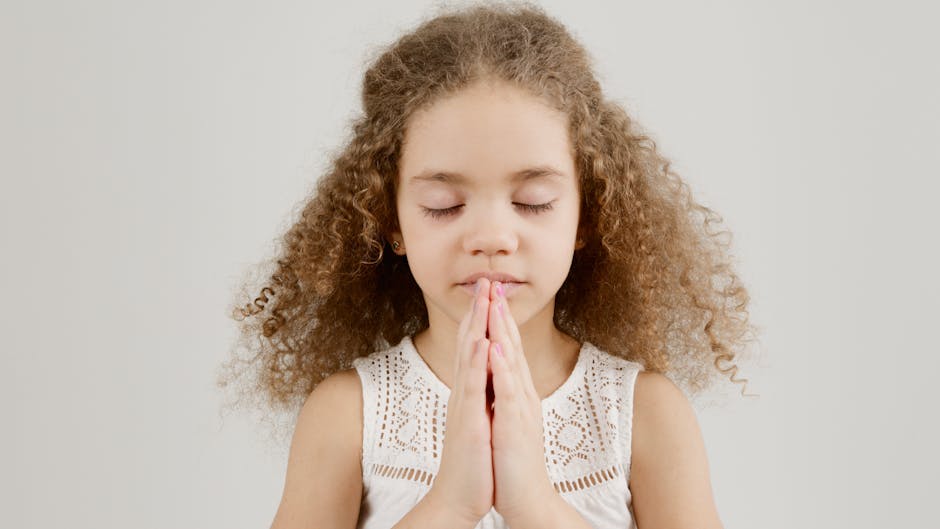Exploring the Power of Gratitude Practices
Welcome to a journey of self-discovery and transformation through the lens of gratitude practices. In a world filled with chaos and uncertainty, embracing the power of gratitude can be a beacon of light guiding us towards a more fulfilling and meaningful life. Have you ever wondered about the profound impact gratitude can have on our mental, emotional, and physical well-being? Let’s delve into the world of gratitude practices, uncovering their history, benefits, and practical applications.
The Roots of Gratitude
Gratitude is not merely a trendy concept but a deeply rooted human experience that has transcended generations and cultures. From ancient philosophical teachings to modern-day psychological research, the theme of gratitude has been a consistent thread woven into the fabric of human existence. The practice of expressing gratitude dates back to ancient civilizations, where it was recognized as a virtue that cultivated positive relationships and fostered a sense of interconnectedness.
Throughout history, gratitude has been extolled by various philosophical traditions, including Stoicism, Buddhism, and Confucianism, as a fundamental practice for cultivating inner peace and contentment. The timeless wisdom of sages and scholars alike has emphasized the transformative power of gratitude in shifting our perspective from scarcity to abundance, from complaint to appreciation.
The Science of Gratitude

By RDNE Stock project via Pexels
As we delve deeper into the realm of gratitude practices, we encounter a wealth of scientific research that underscores the profound impact of gratitude on our well-being. Numerous studies conducted in the fields of psychology, neuroscience, and positive psychology have shed light on the cognitive, emotional, and physiological benefits of practicing gratitude.
Research has shown that individuals who regularly engage in gratitude practices experience increased levels of happiness, satisfaction, and overall well-being. The act of expressing gratitude has been linked to a host of positive outcomes, including improved mental health, enhanced relationships, and greater resilience in the face of adversity.
Neuroscientific studies have revealed that practicing gratitude activates areas of the brain associated with reward processing and emotional regulation, leading to an enhanced sense of positivity and emotional balance. The cultivation of gratitude has also been shown to reduce stress, anxiety, and depression, offering a powerful antidote to the complexities of modern life.
Practical Applications of Gratitude

By Artem Podrez via Pexels
Now that we have explored the historical roots and scientific underpinnings of gratitude practices, let’s delve into the practical applications of gratitude in our daily lives. Cultivating a spirit of gratitude does not require grand gestures or elaborate rituals; rather, it involves simple yet profound acts of appreciation and acknowledgment.
One of the most accessible ways to incorporate gratitude into your daily routine is through the practice of keeping a gratitude journal. Taking just a few minutes each day to write down three things you are grateful for can have a transformative effect on your mindset and outlook. This simple practice helps to shift your focus from what is lacking in your life to what is abundant, fostering a sense of abundance and contentment.
Another powerful way to cultivate gratitude is through the practice of gratitude meditation. By focusing on feelings of gratitude and appreciation during meditation, you can cultivate a deep sense of peace and connection with the world around you. Gratitude meditation has been shown to reduce stress, enhance empathy, and improve overall well-being.
Gratitude in Relationships
Gratitude is not only a personal practice but also a powerful tool for nurturing and strengthening relationships. Expressing gratitude towards others can deepen interpersonal connections, foster trust, and create a supportive and positive environment. Research has shown that couples who regularly express gratitude towards each other experience greater relationship satisfaction and longevity.
Practicing gratitude in the workplace can also have transformative effects on team dynamics and organizational culture. By fostering a culture of appreciation and acknowledgment, leaders can boost employee morale, enhance productivity, and create a positive work environment. Gratitude has the power to inspire and motivate individuals to perform at their best, leading to increased job satisfaction and loyalty.
Gratitude and Mental Health

By Ivan Samkov via Pexels
In the realm of mental health, gratitude practices have emerged as a promising intervention for promoting emotional well-being and resilience. Research has shown that individuals who engage in gratitude practices exhibit lower levels of anxiety, depression, and burnout. Gratitude serves as a protective factor against the negative effects of stress and trauma, offering a buffer against mental health challenges.
For individuals struggling with mental health issues, incorporating gratitude practices into their daily routine can provide a sense of hope and positivity in the face of adversity. The act of acknowledging and appreciating the blessings in one’s life can shift the focus from despair to gratitude, paving the way for healing and growth.
Gratitude in Society

By Alena Darmel via Pexels
As we consider the broader implications of gratitude practices, it becomes evident that gratitude has the power to transform not only individuals but also society as a whole. In a world marked by division, conflict, and uncertainty, the practice of gratitude can serve as a unifying force that bridges differences, fosters empathy, and promotes social cohesion.
By cultivating a culture of gratitude in our communities and institutions, we can create a more compassionate and inclusive society where individuals feel seen, valued, and appreciated. Gratitude has the potential to transcend barriers of race, religion, and politics, uniting us in our shared humanity and interconnectedness.
Expert Opinions
Leading experts in the fields of psychology and positive psychology have shared their insights on the power of gratitude practices. Dr. Robert Emmons, a renowned psychologist and researcher, emphasizes the transformative effects of gratitude on our mental and emotional well-being. According to Dr. Emmons, gratitude is a fundamental human experience that has the power to shift our perspective from negativity to positivity.
Dr. Brene Brown, a bestselling author and vulnerability researcher, highlights the importance of vulnerability in cultivating gratitude. According to Dr. Brown, embracing vulnerability allows us to experience true gratitude and connection with others. By acknowledging our imperfections and struggles, we open ourselves up to the gifts of gratitude and appreciation.
Common Misconceptions
Despite the myriad benefits of gratitude practices, there are several common misconceptions that hinder individuals from embracing this transformative practice. One prevalent misconception is that gratitude is merely a form of positive thinking or denial of negative emotions. In reality, gratitude involves acknowledging and accepting all aspects of our experience, both positive and negative.
Another misconception is that gratitude is reserved for special occasions or grand gestures. In truth, gratitude can be cultivated through simple acts of kindness, appreciation, and acknowledgment in our daily lives. By recognizing the blessings and gifts we already possess, we can cultivate a deeper sense of gratitude and fulfillment.
To Wrap Things Up
In conclusion, the practice of gratitude offers us a profound opportunity to cultivate happiness, resilience, and connection in our lives. By embracing gratitude as a way of being, we can transform our mindset, relationships, and well-being in ways that ripple outwards to create a more compassionate and harmonious world. As we navigate the complexities of modern life, let us remember the power of gratitude to uplift and inspire us on our journey towards a more meaningful and fulfilling existence.
Let us embark on this journey of gratitude with open hearts and minds, embracing the transformative power of appreciation and acknowledgment in all areas of our lives. Together, we can create a world filled with gratitude, kindness, and compassion, one act of gratitude at a time.




